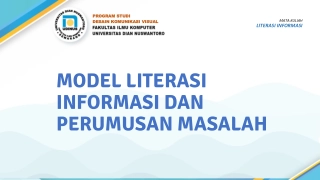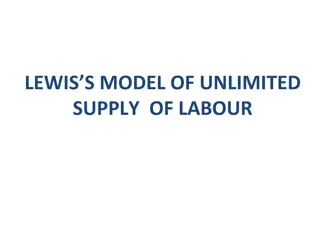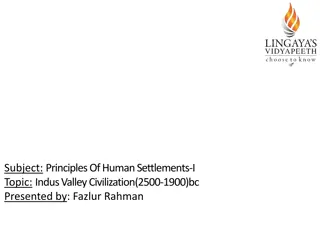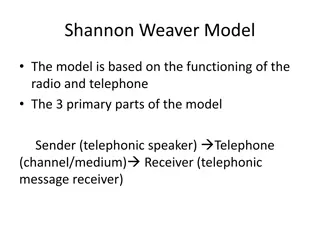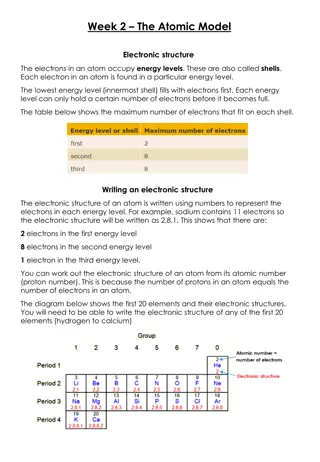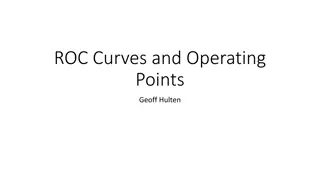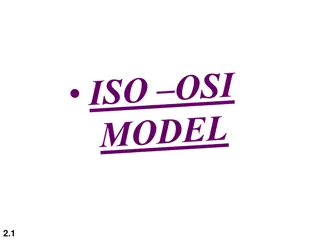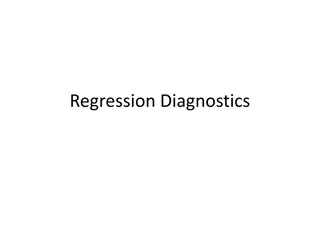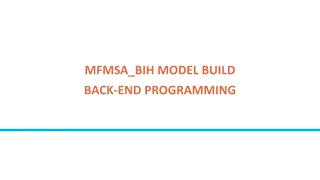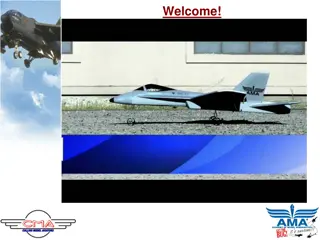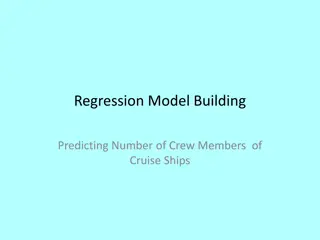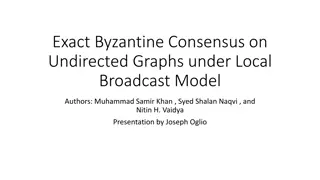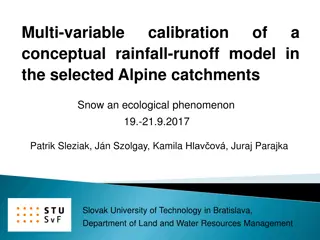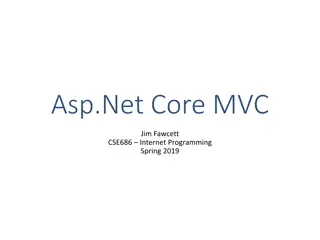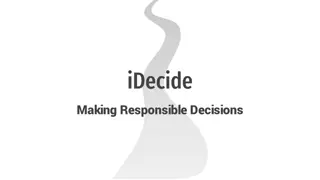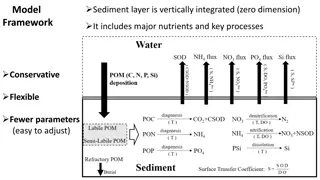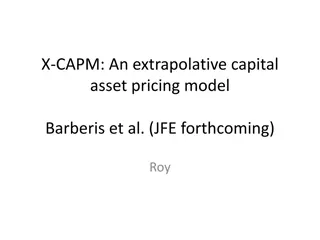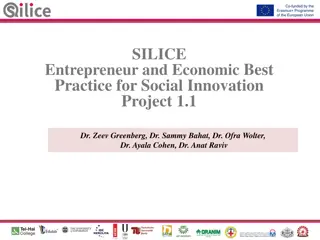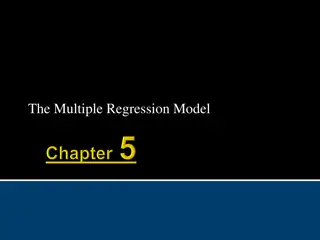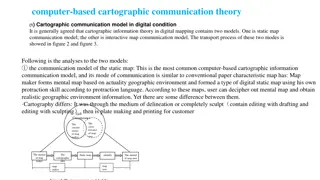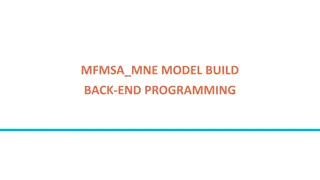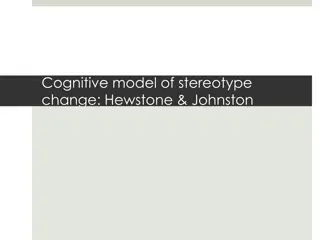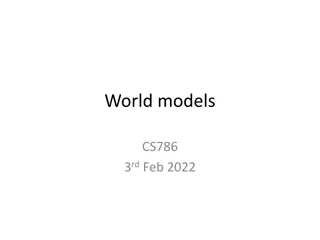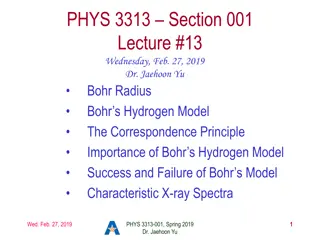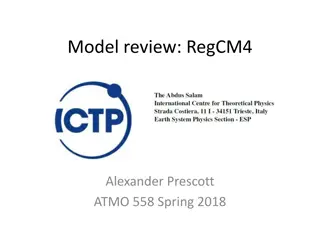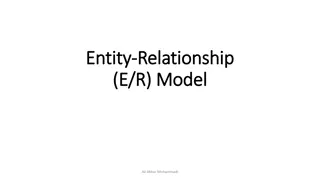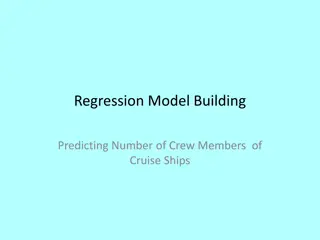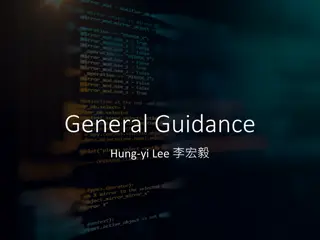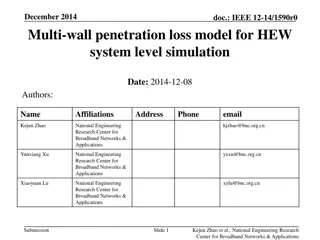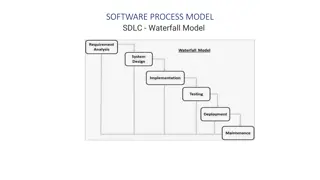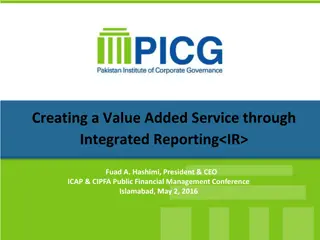Model Literasi Informasi dan Perumusan Masalah dalam Desain Komunikasi Visual
Materi ini membahas model literasi informasi, langkah-langkahnya, serta perumusan masalah dalam konteks Desain Komunikasi Visual. Mahasiswa akan mempelajari berbagai keterampilan dan langkah dalam mengolah informasi, merumuskan masalah, dan menentukan sudut pandang. Model-model literasi informasi se
1 views • 27 slides
Lewis Two-Sector Model: Sustaining Economic Growth Through Labor Transfer
Lewis Two-Sector Model, based on the assumption of surplus labor in agriculture, explains how transferring labor to the industrial sector boosts economic growth. The model highlights the shift from traditional to modern sectors, increased output, wages, and profits, and self-sustaining growth capabi
0 views • 10 slides
Building a Macrostructural Standalone Model for North Macedonia: Model Overview and Features
This project focuses on building a macrostructural standalone model for the economy of North Macedonia. The model layout includes a system overview, theory, functional forms, and features of the MFMSA_MKD. It covers various aspects such as the National Income Account, Fiscal Account, External Accoun
2 views • 23 slides
Understanding Brain Development and Decision-Making Skills
Explore the fascinating realm of brain development and decision-making skills, focusing on how different brain regions activate during decision-making, the evolution of decision-making abilities from adolescence to adulthood, the importance of practicing decision-making skills, and the influence of
6 views • 10 slides
NAMI Family Support Group Model Overview
This content provides an insightful introduction to the NAMI family support group model, emphasizing the importance of having a structured model to guide facilitators and participants in achieving successful support group interactions. It highlights the need for a model to prevent negative group dyn
6 views • 23 slides
Urban Development Models: Burgess and Hoyt
The Burgess concentric ring model and Hoyt sector model are key frameworks explaining urban social structures. Burgess's model illustrates urban land use in rings around the CBD, while Hoyt's model emphasizes outward growth along transportation arteries. Criticisms include applicability limitations
5 views • 13 slides
Making Informed Decisions in Environmental Science
Values play a crucial role in environmental decision-making. Scientific research is essential in addressing environmental issues, but understanding values is necessary before research can begin. This article discusses how values impact environmental decision-making and introduces an environmental de
0 views • 22 slides
Understanding Entity-Relationship Model in Database Systems
This article explores the Entity-Relationship (ER) model in database systems, covering topics like database design, ER model components, entities, attributes, key attributes, composite attributes, and multivalued attributes. The ER model provides a high-level data model to define data elements and r
0 views • 25 slides
Communication Models Overview
The Shannon-Weaver Model is based on the functioning of radio and telephone, with key parts being sender, channel, and receiver. It involves steps like information source, transmitter, channel, receiver, and destination. The model faces technical, semantic, and effectiveness problems. The Linear Mod
0 views • 8 slides
Understanding Atomic Structure: Electrons, Energy Levels, and Historical Models
The atomic model describes how electrons occupy energy levels or shells in an atom. These energy levels have specific capacities for electrons. The electronic structure of an atom is represented by numbers indicating electron distribution. Over time, scientists have developed atomic models based on
0 views • 5 slides
Understanding Quantitative Analysis for Decision Making in Management
Quantitative analysis is a crucial scientific approach for managerial decision-making, involving data manipulation to derive valuable information. This method encompasses problem definition, model development, and acquiring input data. Mathematical models, variables, and parameters play key roles in
0 views • 11 slides
Comprehensive Guide to Decision Making and Creative Thinking in Management
Explore the rational model of decision-making, ways individuals and groups make compromises, guidelines for effective decision-making and creative thinking, utilizing probability theory and decision trees, advantages of group decision-making, and strategies to overcome creativity barriers. Understan
0 views • 30 slides
Understanding ROC Curves and Operating Points in Model Evaluation
In this informative content, Geoff Hulten discusses the significance of ROC curves and operating points in model evaluation. It emphasizes the importance of choosing the right model based on the costs of mistakes like in disease screening and spam filtering. The content explains how logistical regre
7 views • 11 slides
Ethical Decision Making in Clinical Practice: Understanding Dilemmas and Solutions
An examination of ethical decision making in nursing, focusing on defining ethical dilemmas, addressing moral distress, and exploring the purpose of nursing ethics. The importance of aligning personal and professional values, ethical principles, and laws in resolving ethical dilemmas is discussed, a
0 views • 8 slides
Understanding the OSI Model and Layered Tasks in Networking
The content highlights the OSI model and layered tasks in networking, explaining the functions of each layer in the OSI model such as Physical Layer, Data Link Layer, Network Layer, Transport Layer, Session Layer, Presentation Layer, and Application Layer. It also discusses the interaction between l
1 views • 41 slides
Regression Diagnostics for Model Evaluation
Regression diagnostics involve analyzing outlying observations, standardized residuals, model errors, and identifying influential cases to assess the quality of a regression model. This process helps in understanding the accuracy of the model predictions and identifying potential issues that may aff
1 views • 12 slides
MFMSA_BIH Model Build Process Overview
This detailed process outlines the steps involved in preparing, building, and debugging a back-end programming model known as MFMSA_BIH. It covers activities such as data preparation, model building, equation estimation, assumption making, model compilation, and front-end adjustment. The iterative p
0 views • 10 slides
Proposal for Radio Controlled Model Aircraft Site Development
To establish a working relationship for the development of a site suitable for radio-controlled model aircraft use, the proposal suggests local land ownership with oversight from a responsible agency. Collins Model Aviators is proposed as the host club, offering site owner liability insurance throug
0 views • 20 slides
UBU Performance Oversight Engagement Framework Overview
Providing an overview of the UBU Logic Model within the UBU Performance Oversight Engagement Framework, this session covers topics such as what a logic model is, best practice principles, getting started, components of the logic model, evidence & monitoring components, and next steps. The framework
0 views • 33 slides
Regression Model for Predicting Crew Size of Cruise Ships
A regression model was built to predict the number of crew members on cruise ships using potential predictor variables such as Age, Tonnage, Passenger Density, Cabins, and Length. The model showed high correlations among predictors, with Passengers and Cabins being particularly problematic. The full
0 views • 16 slides
Exact Byzantine Consensus on Undirected Graphs: Local Broadcast Model
This research focuses on achieving exact Byzantine consensus on undirected graphs under the local broadcast model, where communication is synchronous with known underlying graphs. The model reduces the power of Byzantine nodes and imposes connectivity requirements. The algorithm involves flooding va
0 views • 7 slides
Calibration of Multi-Variable Rainfall-Runoff Model Using Snow Data in Alpine Catchments
Explore the calibration of a conceptual rainfall-runoff model in Alpine catchments, focusing on the importance of incorporating snow data. The study assesses the benefits of using multi-objective approaches and additional datasets for model performance. Various aspects such as snow cover, groundwate
0 views • 16 slides
Understanding Asp.Net Core MVC - Building Web Applications with Model-View-Controller Pattern
Asp.Net Core MVC is a framework for building web applications based on the Model-View-Controller pattern. The model manages application data and constraints, views present application state, and controllers handle requests and actions on the data model. Learn about the MVC structure, life cycle, mod
0 views • 22 slides
Mastering the Art of Decision-Making
Explore the importance of responsible decision-making, understand the impact of decisions on oneself and others, learn to differentiate between impulsive and thoughtful decisions, and follow a structured Decision-Making Model to achieve goals successfully. Delve into the essence of making good decis
0 views • 10 slides
Integrated Sediment Model for Nutrient Processes in Chesapeake Bay
This sediment model framework integrates major nutrients and key processes in a vertically integrated, zero-dimensional scheme. It is characterized by its conservative and flexible nature, with fewer parameters making adjustments easy. The model includes a scheme for POM remineralization and finds a
0 views • 8 slides
Understanding X-CAPM: An Extrapolative Capital Asset Pricing Model
This paper discusses the X-CAPM model proposed by Barberis et al., which addresses the challenges posed by investors with extrapolative expectations. The model analytically solves a heterogeneous agents consumption-based model, simulates it, and matches various moments. It explores how rational inve
0 views • 23 slides
Innovation and Social Entrepreneurship Initiatives in Higher Education
This project focuses on establishing a leading center for promoting innovation and social entrepreneurship within higher education institutions. It aims to encourage students and staff to develop creative solutions for community challenges, expand social involvement, and foster sustainable positive
0 views • 13 slides
Principles of Econometrics: Multiple Regression Model Overview
Explore the key concepts of the Multiple Regression Model, including model specification, parameter estimation, hypothesis testing, and goodness-of-fit measurements. Assumptions and properties of the model are discussed, highlighting the relationship between variables and the econometric model. Vari
1 views • 31 slides
The Evolution of Cartographic Communication Theory in the Digital Age
Cartographic communication theory in digital mapping involves two models: the static map communication model and the interactive map communication model. The static map model follows traditional map-making methods adapted to digital tools, while the interactive map model leverages user feedback to r
0 views • 8 slides
Detailed Process of Building MFMSA_MNE Model in Back-end Programming
The process involves preparing data, building and debugging a model, writing and estimating equations, making assumptions, compiling and solving the model, adjusting the front-end, ensuring data consistency, and observing properties through an iterative process. It includes specific steps such as co
0 views • 10 slides
Cognitive Model of Stereotype Change: Three Models Explored
The Cognitive Model of Stereotype Change, as researched by Hewstone & Johnston, delves into three key models for altering stereotypical beliefs: the bookkeeping model, the conversion model, and the subtyping model. These models suggest strategies such as adding or removing features to shift stereoty
0 views • 58 slides
Exploring Levels of Analysis in Reinforcement Learning and Decision-Making
This content delves into various levels of analysis related to computational and algorithmic problem-solving in the context of Reinforcement Learning (RL) in the brain. It discusses how RL preferences for actions leading to favorable outcomes are resolved using Markov Decision Processes (MDPs) and m
0 views • 18 slides
Understanding Bohr's Model of the Hydrogen Atom
Exploring the significance of Bohr's hydrogen model in physics, this lecture delves into the Bohr radius, the correspondence principle, and the success and limitations of his model. Discover how characteristic X-ray spectra contribute to our understanding of atomic structures, leading to the conclus
0 views • 14 slides
Overview of RegCM4 Model Features
RegCM4 is a community model developed since the 1980s, with over 800 scientists contributing to its advancements. It features a fully compressible, rotating frame of reference and a limited area dynamical core based on the Penn State/NCAR Mesoscale Model 5 (MM5). The model uses hydrostatic and nonhy
0 views • 14 slides
Understanding Entity-Relationship Model in Databases
The Entity-Relationship Model (E/R Model) is a widely used conceptual data model proposed by Peter P. Chen. It provides a high-level description of the database system during the requirements collection stage. Entities represent things of independent existence, each described by a set of attributes.
0 views • 21 slides
Predicting Number of Crew Members on Cruise Ships Using Regression Model
This analysis involves building a regression model to predict the number of crew members on cruise ships. The dataset includes information on 158 cruise ships with potential predictor variables such as age, tonnage, passengers, length, cabins, and passenger density. The full model with 6 predictors
0 views • 15 slides
Understanding Model Bias and Optimization in Machine Learning
Learn about the concepts of model bias, loss on training data, and optimization issues in the context of machine learning. Discover strategies to address model bias, deal with large or small losses, and optimize models effectively to improve performance and accuracy. Gain insights into splitting tra
0 views • 29 slides
Analysis of Multi-Wall Penetration Loss Model for HEW System-Level Simulation
In December 2014, a multi-wall penetration loss model for HEW system-level simulation was proposed by Kejun Zhao, Yunxiang Xu, and Xiaoyuan Lu from the National Engineering Research Center for Broadband Networks & Applications. The model provides more accurate calculations of penetration loss in ind
0 views • 11 slides
Understanding the Waterfall Model in Software Development
The Waterfall Model is a linear-sequential life cycle model for software development. In this model, each phase must be completed before the next can begin, without overlaps. The sequential phases include Requirement Gathering, System Design, Implementation, Integration and Testing, Deployment, and
0 views • 7 slides
Business Model Reporting for Value Creation
Integrated Reporting (IR) plays a crucial role in forging business partnerships and facilitating sound decision-making. Understanding the organizational business model is essential for long-term sustainability and value creation. The global approach to business model reporting encompasses business s
0 views • 42 slides
